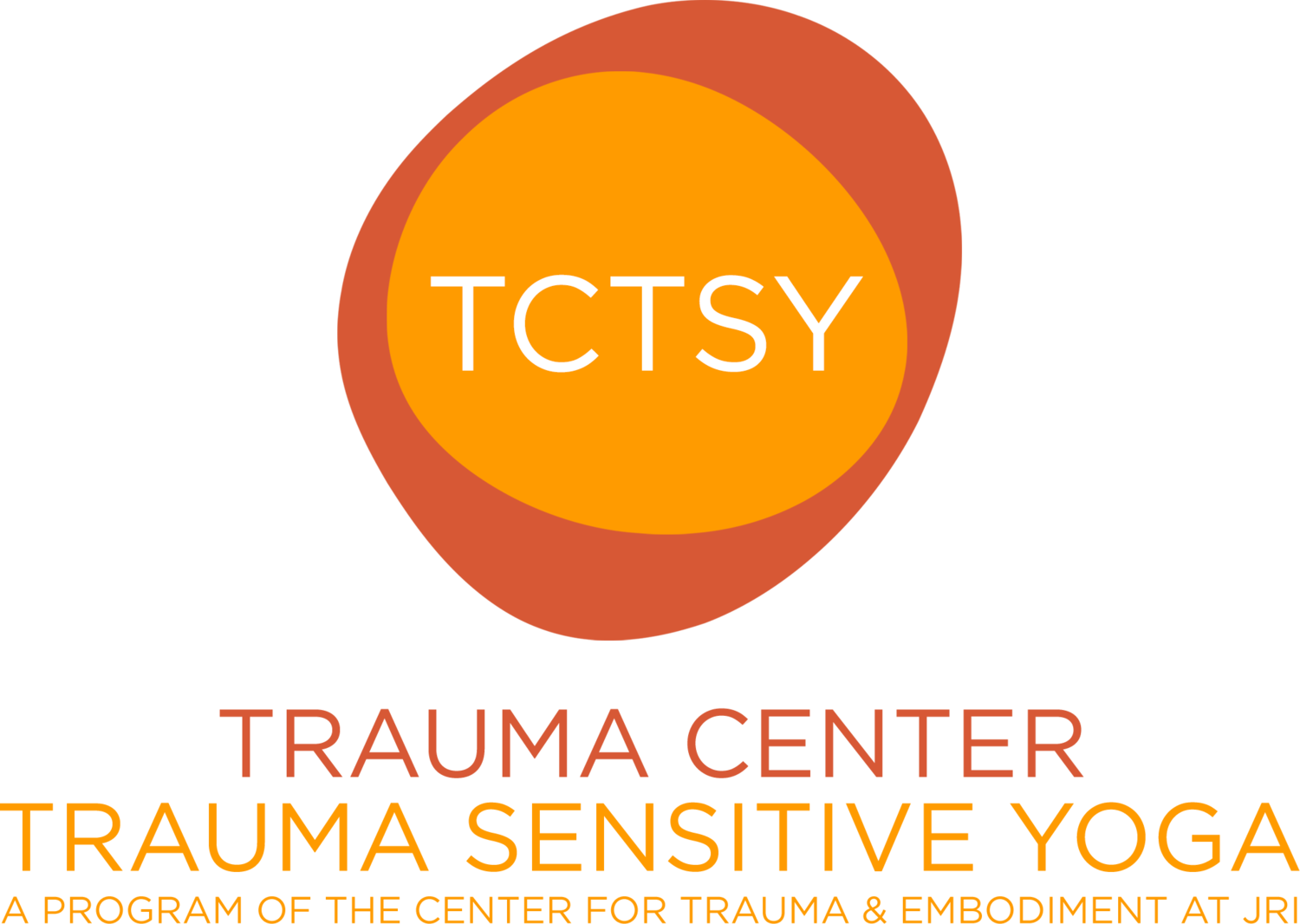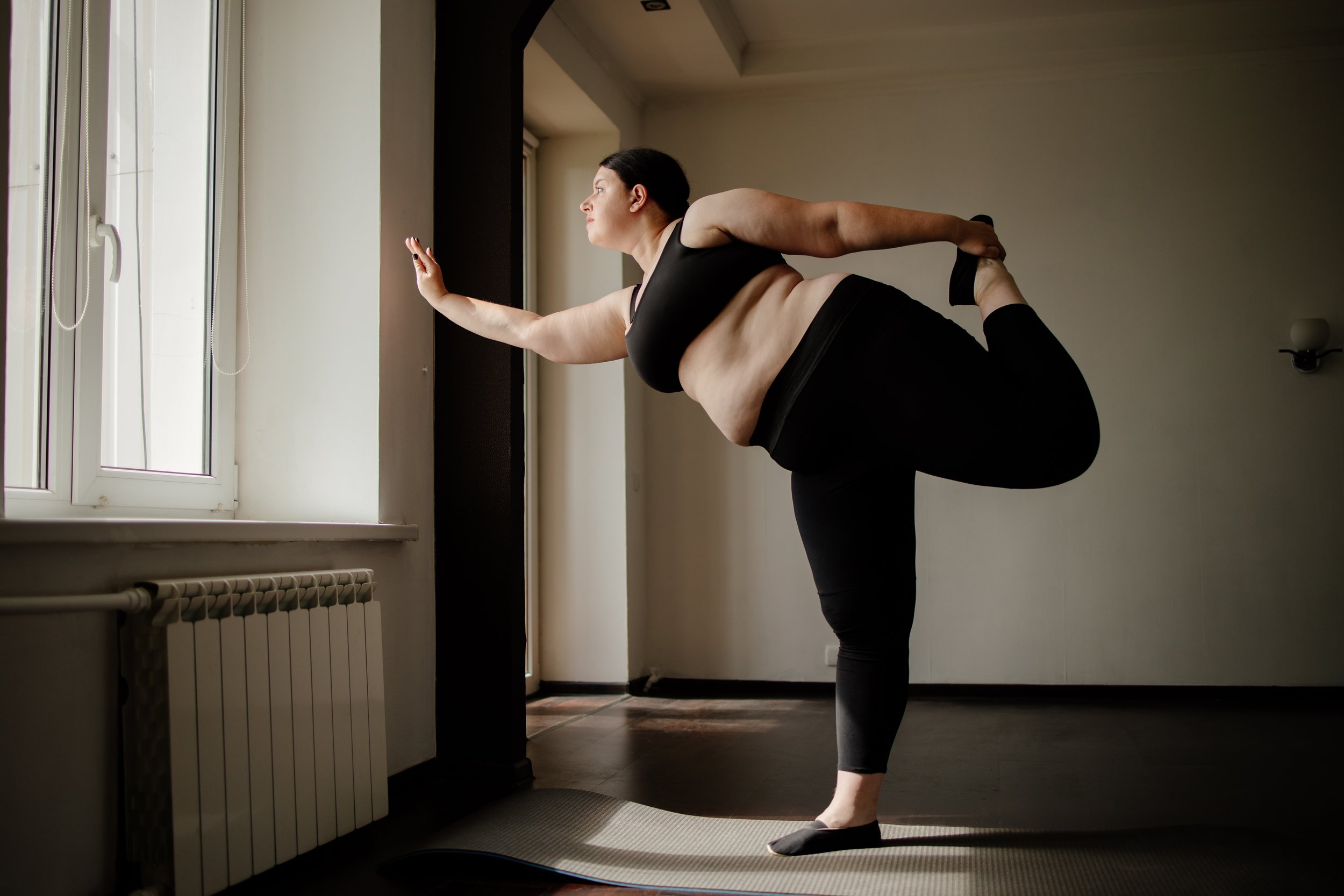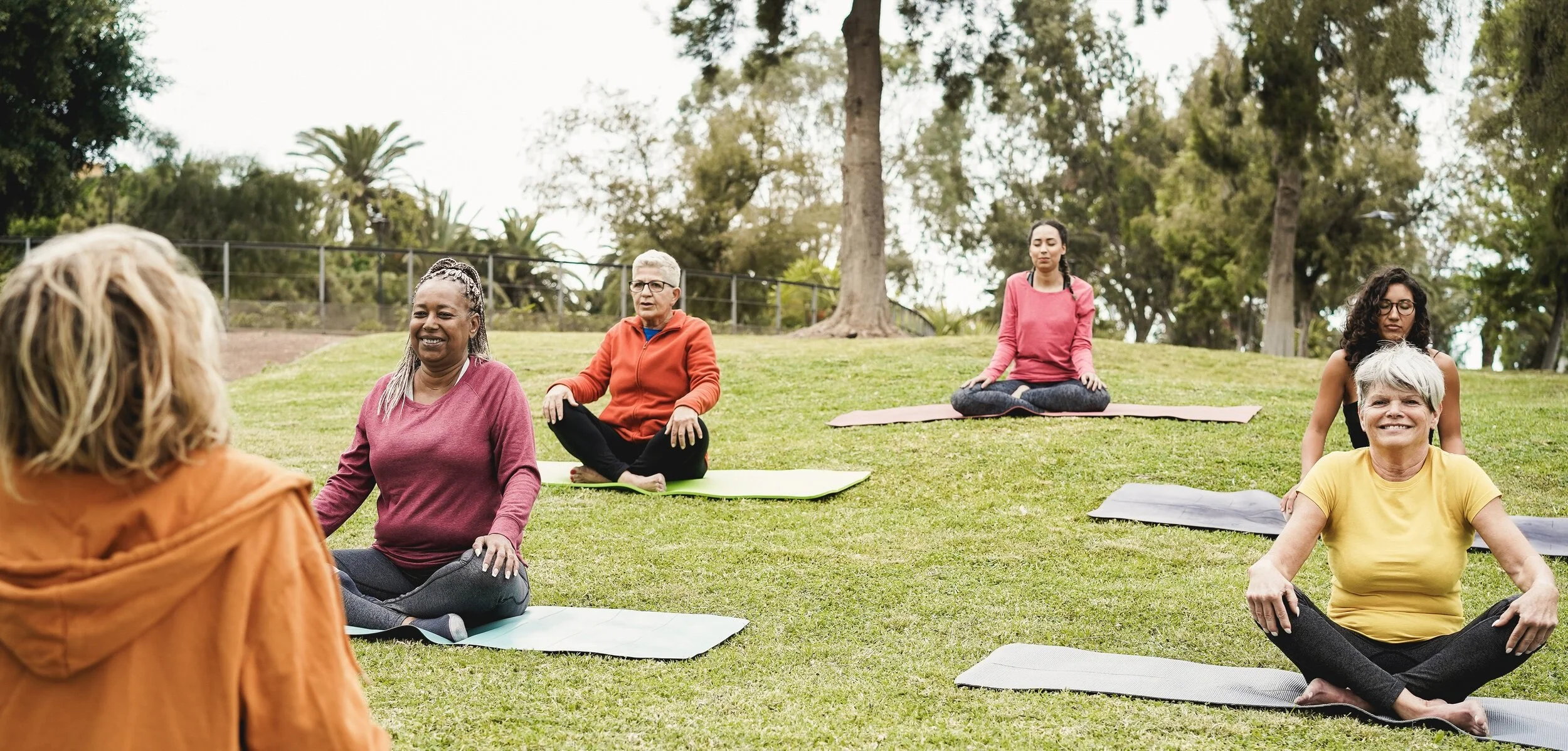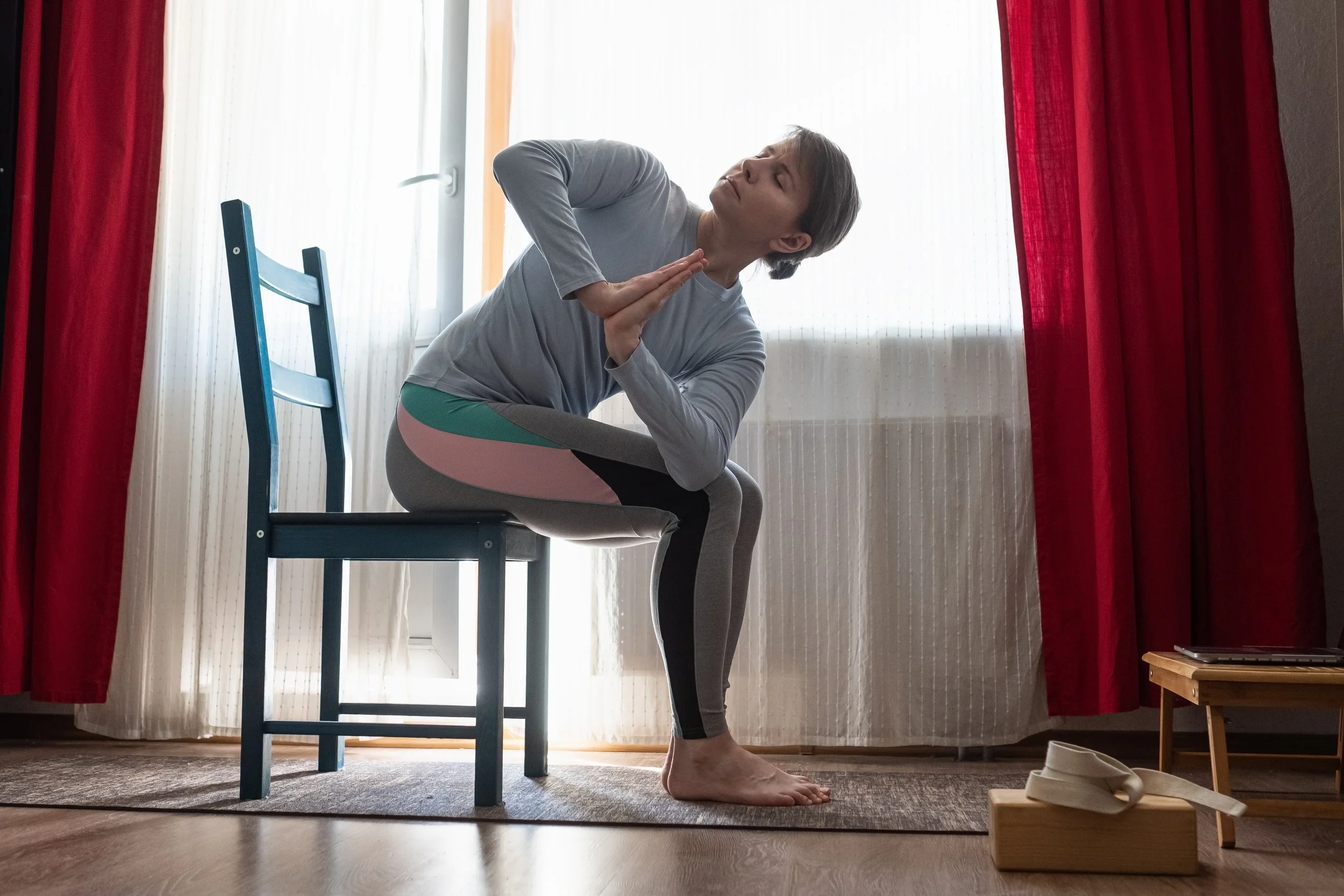TCTSY is the
Original Yoga for Trauma
TCTSY is the first yoga-based empirically validated, clinical intervention for complex trauma or chronic, treatment-resistant post-traumatic stress disorder (PTSD).
Developed originally at the Trauma Center in Brookline, Massachusetts by Dave Emerson and others, Trauma Center Trauma Sensitive Yoga (TCTSY) is now a program of Center for Trauma and Embodiment at Justice Resource Institute.
CFTE Co-Directors Jenn and Dave explain the TCTSY model of Trauma Sensitive Yoga
The TCTSY methodology is based on central components of the hatha style of yoga, where participants engage in a series of physical forms and movements. Elements of standard hatha yoga are modified to maximize experiences of empowerment and to cultivate a more positive relationship to one's body.
Unlike many public yoga classes, TCTSY does not use physical hands-on adjustments to influence a participant's physical form. Rather, TCTSY presents opportunities for participants to be in charge of themselves based on a felt sense of their own body.
Although TCTSY employs physical forms and movements, the emphasis is not on the external expression or appearance (i.e. doing it"right"), or receiving the approval of an external authority. Rather, the focus is on the internal experience of the participant.
This shift in orientation, from the external to the internal, is a key attribute of TCTSY as a treatment for complex trauma and PTSD. With our approach, the power resides within the individual, not the TCTSY facilitator (TCTSY-F). Further, by focusing on the felt sense of the body to inform choice-making, TCTSY allows participants to restore their connection of mind and body and cultivate a sense of agency that is often compromised as a result of trauma.
All TCTSY facilitators, staff, trainers, and mentors are required to agree and adhere to our ethical guidelines, or as we call them, Ways of Being.
The TCTSY program is the first to qualify for inclusion in the National Registry of Evidence-based Programs and Practices (NREPP) database published by the Substance Abuse and Mental Health Services Administration (SAMHSA).
In 2021, Trauma Sensitive Yoga was further validated as an effective adjunct treatment for complex trauma and PTSD in a study involving women veterans and military sexual trauma-related PTSD.
In a comparison with CPT (cognitive processing therapy), the gold standard in therapy treatments, TCTSY yielded quicker symptom improvement, higher participant retention, and an equally sustained effect. In the adjacent video, the researchers of the study present the findings of a 5-year randomized controlled trial.
TCTSY has foundations in trauma theory, attachment theory, neuroscience, and hatha yoga, with an emphasis on body-based yoga forms and breathing practices
History of CFTE
Center for Trauma & Embodiment (CFTE) at Justice Resource Institute was created in 2018 with the intention to foster shared systems of power in terms of leadership and community. This formation of a new organization was a direct result of shifting away from previous abuses of power at the Trauma Center at JRI. While these abuses have since been resolved, CFTE’s mission as a distinct — yet related — organization is to generate inclusive leadership that benefits from the input and scrutiny of several people with varying identities, lived experiences, and professional competencies.
Development of TCTSY
The Trauma Center Yoga program began in 2002. Between 2003-2006, combining clinical insights and a dedication to yoga teaching for people who were suffering from psychological trauma, the first pilot studies were undertaken by the Trauma Center in Brookline, Massachusetts. We acknowledge and honor that Brookline resides on the indigenous land of the Massachuset Nation. Partners in the community such as Healthworks for Women and Back Bay Yoga graciously donated their space for the pilot studies. Some information from these initial pilots was published in 2006 in a paper called "Clinical Implications of Neuroscience Research”.
We began offering sessions for groups and individuals in 2003 along side the pilot studies and immediately began learning from our students. Over the years, many yoga teachers, mental health care professionals, and students have graciously contributed their time, expertise, and insight to the development of our yoga model, that we call Trauma Center Trauma-Sensitive Yoga (TCTSY).
In 2009, we received the first grant given by the National Institutes of Health (NIH) to study yoga for trauma.
In 2014 our original study was published in the Journal of Clinical Psychiatry. Since then, several organizations have replicated our study either verbatim or with modifications.
In 2017, TCTSY became the first dedicated yoga program listed as an evidence-based program/practice for the treatment of psychological trauma.
In 2018, the United States government removed the federal listing of evidence based practices and replaced it with a general reference to yoga as a "complementary therapy" for PTSD.
By 2020, our 300-hour Certification Program had over 150 enrollments annually. There are hundreds of TCTSY facilitators in over 30 nations, territories, & First Nations communities.
Today, we continue to grow globally with a diverse team of leaders, supervisors, trainers, and students. We have published several books on our program and methodology, including a new book that highlights the voices of facilitators and survivors from the practice of TCTSY.
We’ve also launched two other programs: Trauma Informed Weight Lifting and ReScripted, a theater-based trauma program for kids.







